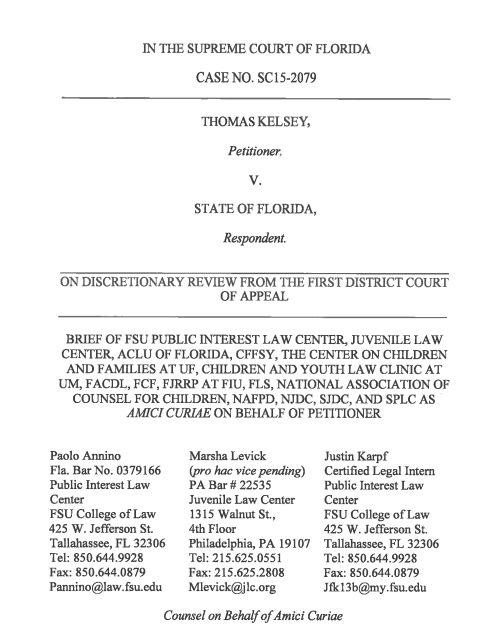
Summary of Argument
Roper, Graham, and Miller establish that juvenile offenders are entitled to specific constitutional protections in sentencing that adult offenders are denied. In making “demonstrated maturity and rehabilitation” the standard for release, the U.S. Supreme Court intended for juvenile offenders to have an opportunity to be released back into society to lead productive lives. “Lengthy term-of-years sentences” deny juvenile offenders a “meaningful opportunity” to contribute to society upon their release. “Lengthy” has not been defined in Florida, but Iowa’s approach is instructive, and this Court should adopt Iowa’s definition.
Graham and Miller, as well as this Court’s precedent, require that juvenile offenders with lengthy term-of-years sentences receive new sentences under chapter 2014-220, Laws of Florida. In addition, social science shows that life expectancy is difficult to calculate and recidivism rates decrease significantly as juveniles mature.